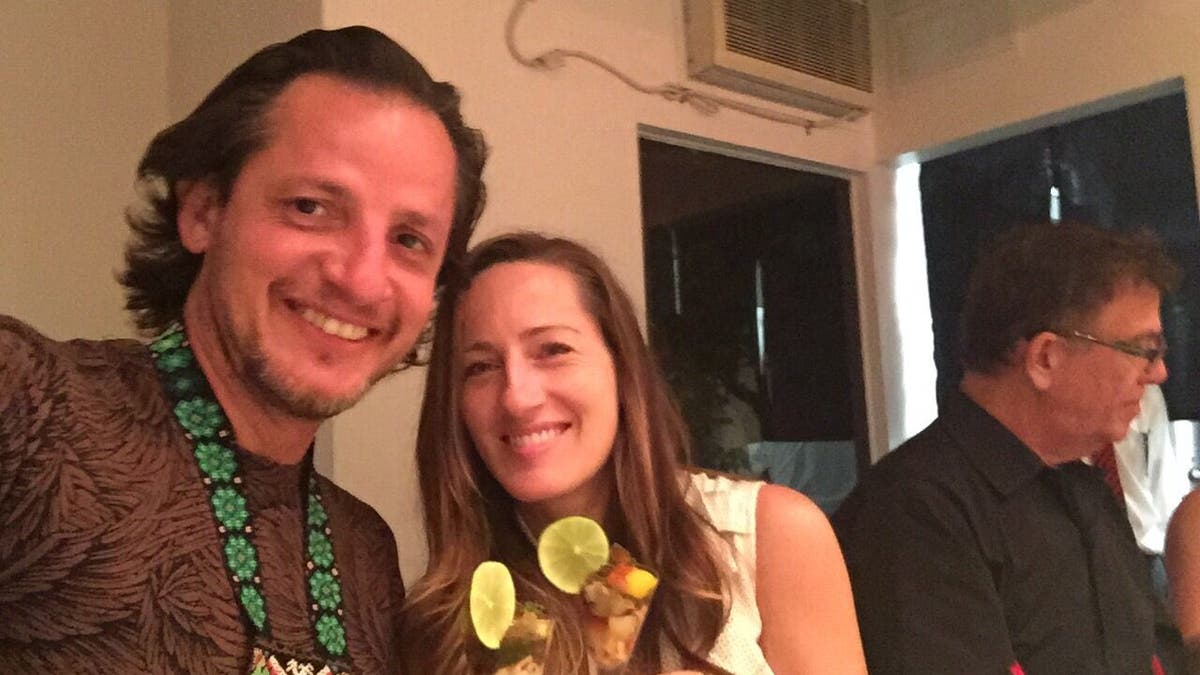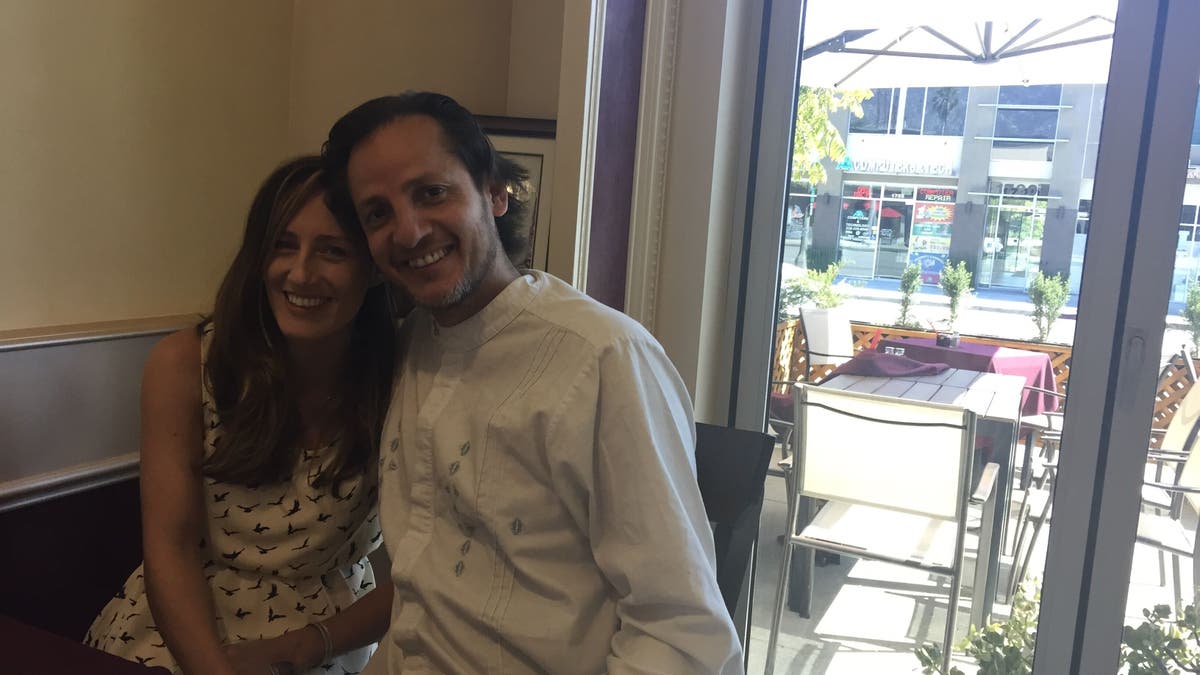
April Corley and Rafael Bejarano
In fall 2015, I flew from California to Cairo, Egypt, for a vacation with my boyfriend, Rafael Bejarano. We were deeply in love, and Rafael told me he had a big surprise for me on our trip. I expected it to end with a marriage proposal. Just days later, we flew back separately. I was in a medevac. He was in a body bag.
The government of Egypt later called what its military did to us “tragic” and a “mistake.”
On September 13, 2015, Rafael and I traveled from Cairo to Egypt’s Western Desert, a popular tourist destination. We were to meet our party of about a dozen other travelers for a guided tour. I was the only American in the group, which was led by a reputable Egyptian touring company that had a government-issued permit to travel through the desert.
U.S. TO RELEASE $1.2 BILLION IN MILITARY AID TO EGYPT
As we stopped for a picnic lunch, an Egyptian military aircraft – which I later learned was a U.S.-funded Boeing AH-64 Apache helicopter – appeared in the sky and fired rockets at us. Explosions shook the desert. I watched a person’s face blown to pieces in front of me, and I was then violently thrown backward from another explosion. Rafael was slaughtered.

Two survivors got to the nearest military checkpoint, but the soldiers refused to come help us for hours. I was left in the desert carnage, surrounded by charred bodies, bloodied and blackened sand, and burning vehicles. It was hell on earth – and a hell I relive every day of my life.
Since then, I have needed eight surgeries with more to come, dozens of prescription medications, hundreds of medical appointments, and more than 200 physical therapy sessions -- but I will never recover.
Many days, I am unable to perform basic tasks, such as washing my own hair or dressing myself. I am in pain as I walk, sit, and sleep. I have severe post-traumatic stress disorder, and I struggle to maintain friendships and ties with family. I cannot work because of my profound injuries, inability to concentrate, and the endless paperwork and bills. The effort and energy needed to be a survivor is beyond me.
Before the attack, I was living my dream as a professional roller-skater and cosmetologist in Hollywood. I had represented the U.S. in pairs at the U.S. Nationals (winning gold twice and silver three times), the Pan-American Games (winning silver), and the World Championships. I also appeared in commercials, music videos, film and TV, and toured with Madonna and trained Katy Perry’s performers. My life has been destroyed, and I am only 40-years-old.

April Corley
Since the attack, I have begged Egypt to compensate me for my injuries and expenses, but the money offered wouldn’t cover even my medevac from Egypt, which I paid for. Instead, Egypt has hidden behind the Foreign Sovereign Immunities Act (FSIA), which prohibits private citizens from suing foreign governments in U.S. courts -- to avoid responsibility.
But the worst part is that, as an American taxpayer, I funded the brutal attack that destroyed my life and killed Rafael, and I still fund the Egyptian military. Egypt has received more than $80 billion in U.S. aid since 1946, including nearly $1.3 billion dollars annually in military assistance since the Camp David accords.
While I am deeply grateful that Secretary of State Mike Pompeo raised my case to senior Egyptian officials in his January visit to Cairo and bipartisan congressional leaders have rallied to my cause, Egypt remains intransigent.
First, I urge President Trump to delay the sale of new Apaches until Egypt accepts responsibility for my damages. Completing this sale would tell Egypt it can use U.S. weapons to kill or injure Americans with total impunity.
Second, the Trump Administration and Congress should create a retroactive exception to the FSIA to allow U.S. victims of negligent or intentional attacks by the Egyptian military using U.S.-funded-or-approved military assistance to sue for damages in U.S. courts. Strong precedent exists for this kind of exception, such as the law allowing 9/11 victims to sue Saudi Arabia.
Third, the Trump Administration should cancel at least $300 million of U.S. military assistance to Egypt annually until it fully meets the wide range of Congressionally-mandated human rights requirements that it simply ignores without consequence and requires me to be properly compensated.
CLICK HERE TO GET THE FOX NEWS APP
While I understand and appreciate that the U.S.-Egypt bilateral relationship is very important, I hope and expect that President Trump, Congress, and all Americans will agree that no foreign government deserves a free pass when it kills or injures Americans with our military assistance.
